- Home
- Patrick Robinson
Hunter Killer Page 31
Hunter Killer Read online
Page 31
The President stood and gaped at the daffodils. “Morning, Arnie,” he said, smiling. “Hey, you got the blossoms. And you’re right on time, as ever.”
“End of the morning watch, eh?” replied the Admiral, mindful of the fact that the former Lt. Paul Bedford was immensely proud of having once served as navigation officer in a U.S. Navy guided-missile frigate.
The President chuckled. But his smile did not last for long. He buzzed his secretary and asked her to find someone to put his daffodils in a vase.
Then he said, “Sit down, Arnie. I’ve sent for some coffee. You want anything to eat?”
“No, thanks, sir. Coffee’s fine. Guess we’re talking about this Saudi Arabian bullshit, right?”
“We sure are. Just this morning the goddamned phone has never stopped ringing. Things are moving real fast. You heard any of the latest news?”
“Not as much as you have,” replied Morgan. “Last thing I picked up on the radio was extreme fighting at the Saudi military city of Khamis Mushayt, and that the people of Riyadh appeared to be marching on the royal palace.”
“Both correct,” said the President. “But I hear now that the Khamis Mushayt Air Base has fallen, and so has the big Air Force station right next to it.”
“Anyone say to whom it fell?” asked the Admiral.
“Ask not to whom the base fell,” quipped the President. “Because we don’t know. And neither do they. But the sucker fell, all right. Our air attaché in Riyadh reckons they lost half the Saudi Air Force.”
“We got one shred of evidence of an outside foe?” asked Morgan.
“Nothing,” said Paul Bedford. “If this is some kind of a war, it’s one of the most secretive ever conducted. No one has the remotest idea who’s doing the attacking.”
“Guess someone does,” mused the Admiral.
“And whoever that might be,” replied the President, “they sure as hell know what they’re doing. I’ve been looking at the stats on Khamis Mushayt. It’s a huge and remote place. And no one even knows what happened. But they all say one thing…it’s a one hundred percent Arab matter…conducted from inside the country.”
Morgan nodded. “It just may be a little more complicated than that,” he said. “Any news from Riyadh? I heard on the radio the Saudi Army may have turned on the King.”
“Well, there’s some rumor the aiport’s fallen to an armed assault force,” said the President.
“Do we know where the King is right now?”
“No one seems to know. But I have spoken to him. And he was not under attack at the time.”
“Is he in the royal palace?”
“I don’t know that. I guess he doesn’t want anyone to know where he is.”
“‘Specially not the guys who just blew up his oil fields and his Air Force, eh?” replied Morgan.
“Right,” agreed the President. “’Specially not them.”
“Any sign of the King’s Army mounting a defense? He’s got a hell of an armed force, and a lot of very sophisticated equipment.”
“This whole thing seems like a series of devastating attacks—fast, professional, and very ruthless. Very military.” The President looked utterly perplexed.
It was a few minutes after 8 A.M. Just then his secretary pushed open the door and walked over to the television set, which she tuned to CNN World News. “Sir, General Scannell just called to say it looks like the King of Saudi Arabia is dead. And he says the new King is about to broadcast.”
“Thank you, Sally,” said the President, turning with the Admiral toward the screen, where the anchorman was formally announcing the death of the Saudi ruler.
“The new King is fifty-six-year-old Nasir Ibn Mohammed al-Saud, a devout Sunni Muslim and a cousin of the slain King. He has been Crown Prince, heir to the throne, for almost twenty years and, like most of the Saudi royal family, he is a direct descendant of the founder of the kingdom, the legendary desert warrior Abdul Aziz, known as ‘Ibn Saud.’
“And now we’ll go live to Riyadh, where King Nasir is making his first address to the nation, and hopefully we’ll have some real information on how all this took place.”
The screen flickered, and suddenly the picture was of a robed and bearded Arab, his dress white, a red-and-white–checkered ghutra on his head, speaking to the people of Saudi Arabia.
The President and Arnold Morgan watched together as King Nasir announced his regret at the death of his cousin, but nonetheless confirmed that this had been a “people’s revolution,” launched by thousands of citizens who could no longer acquiesce to the profligate spending of their ruler.
He sent his message of hope for the future, but Arnold Morgan frowned when the new King pointed out that France was his nation of choice to help rebuild the Saudi oil industry on both the east and west coasts of the Kingdom.
It was well known that Prince Nasir had long been a reformer, a strict Muslim fundamentalist who would stand by the teachings of the Koran and most certainly would not tolerate the spectacular levels of spending achieved by the royal princes. He himself was a man of the desert, and he believed in the Bedouin way of life, not only for others but for himself. He was a man of prayer and abstinence, and he despised the godless and material ways of the Western civilizations. And above all he wanted the United States out of the Middle East, and with that an end to terrorism.
But first he wanted a legal, internationally recognized Palestinian State. It was clear that now, for the first time, the Palestinians had for an ally the most powerful nation on the Arabian Peninsula. And at the head of that nation stood a man who cared nothing for the United States, nor for Israel.
This was not good for the man behind the desk in the Oval Office. And it was not good for the United States, where gasoline was currently commanding nearly ten dollars a gallon at the pumps. And the President said so.
“Seems to me there’s only two parties doing well out of this,” commented Morgan. “France and that goddamned towelhead up there with his goddamned self-satisfied smile.”
“And his goddamned fleet of limousines, private jets, and servants,” added the President, smiling.
“Yeah, but he says he has no interest in all of that,” said Morgan.
“I know. But total power gets awfully addictive. And you cannot fault the lifestyle. He’ll get to like it.”
“Well, I really hope you’re right, Mr. President. Because if you’re not, and he really is a man of the desert, we’re in real trouble.”
“You mean no more Saudi oil?”
“Well, that. But also because Saudi Arabia has always been the missing piece in the jigsaw puzzle of the Muslim republics in the Middle East. Apart from the very small nations, we have always had Yemen, Iraq, Jordan, Syria, Kuwait, the Arab Emirates, Iran, Egypt, Libya, and most of North Africa. And, basically, you know where you are with all of them. They form one huge block of Islamic nations.
“But in the middle of them stands Saudi Arabia, which in modern times has always been neither one thing nor the other. No longer a fundamentalist Muslim nation, always a serious friend of the West, a group of devout Muslim princes, who own, literally, a fleet of the most expensive yachts in the world. Young men who profess devotion to the word of the Koran but live like Riviera playboys, at the King’s expense.
“Saudi Arabia, our friend and ally, has always been the one huge thorn in the side of the Muslim republics. The one nation that is always out of step, the royal family that plays both hands against the middle. In short, the Saudis are a pariah to those who wish for a great Islamic Empire stretching from the Red Sea to Morocco.
“And some very influential Muslims have long hated the sight of them—guys like old bin Laden, even Saddam, the Hamas leadership, Hezbollah, all the supporters of the jihad. They hate Saudi Arabia for its endless wealth, its willingness to work with the West, and above all, its refusal to back any Arab action against the nation of Israel.
“Mr. President,” continued Arnold Morgan, “that all ended abo
ut ten minutes ago. This Nasir character just placed the last piece into that Muslim jigsaw.”
Paul Bedford stood up and walked the length of the Oval Office. “But what about the oil crisis, Arnie? What the hell’s going to happen about that?”
“Mr. President, you are going to get the blame for that.”
“ME? ” exclaimed the Chief Executive. “What in the name of God has it got to do with me?”
“Everything. The American people are going to put up with a ten-dollar-a-gallon gas crisis—for a little while. And then you’re going to start hearing…well, what the hell’s the President doing about it? Why doesn’t he negotiate with King Nasir? Why can’t he be like other Presidents, stay friends with Saudi Arabia?”
“I guess other Presidents have coped with that.”
“Not quite,” said Morgan. “Because this one is going to smash the world economy. It won’t smash us, but it’ll go damn close. Inflation will run amok, corporations will go bust, and the stock market will cave in. There’ll be a run on the dollar, and our trading partners all over the world will be unable to pay us. This is a global financial crisis.
“And you, Mr. President, are going to be swept away in the torrent…a reviled figure in history…the President who let it happen…unless you do something about it. And damn fast.”
“But what can I do? Right here we’re dealing with a guy dressed in a sheet who wants to live in a tent in the desert. And he plainly wants nothing to do with us. And the fucking oil belongs to him.” The President was just beginning to get rattled.
Admiral Morgan climbed to his feet. He stared across the room at the loneliest man in the world, who was standing, hesitantly, beneath a portrait of George Washington.
Morgan clenched his fist, gritting out the words: “LEADERSHIP, Paul. You gotta raise your sights. Never mind the goddamned towelhead and his oil. You gotta stand up and say, I’M NOT HAVING IT. NOT AT ANY PRICE. NO ONE HAS THE RIGHT TO SMASH THE WORLD’S ECONOMY. AND HE’LL EITHER NEGOTIATE WITH ME, OR I’LL KICK HIS FUCKING ASS!”
The President stared. But Morgan was not quite finished. He returned to his chair and said quietly, “And then, if we have to, we’ll take his oil away and send the tribal bastard back into the wilderness. Because any other course of action is ultimately unacceptable, to the world, that is. Not just us.”
“Arnie, are you saying I must be prepared to go to war with Saudi Arabia?”
“Sir, we don’t go to war in the Middle East. We merely crash down an iron fist. It might be on some desert chieftain who thinks he can murder hundreds of thousands of people. It might be on a guy who has too many military ambitions and too many weapons. Or it might just be a guy we happen to think is unstable and dangerous to his neighbors. Either way, because of the effect of oil on the world’s economy, we just cannot let some things go unchecked.
“And when some crazy prick under a palm tree thinks he can blithely wreck the economy of dozens of countries, just because he happens to have been born on some sand hill on top of a geological phenomenon…well, that’s when the oil becomes a world asset rather than a national asset. And that’s when we deem his stewardship of that oil has become remiss, and that’s when we move to stabilize the world once more.”
“Arnie, you should be sitting in this chair.”
“No, thanks, Paul. I’ve got my own.”
The President smiled. And there was one thought within him: When this old warrior walks out of this office in a minute, I don’t quite know if I can cope with this.
Arnold Morgan read his mind. “Paul,” he said, “it’s all a matter a getting your thoughts straight. And you must be guided by a point of principle: If this Nasir character thinks he can screw up the world just because he feels like it, he’s wrong.”
The President nodded. “I sometimes think you forget I am the leader of a political party that stands to the left, and believes in freedom, help, and education for all the downtrodden peoples of this earth, including some of our own. It is not in our nature to go around crushing those who may seem to stand in our way. “
Morgan looked up and glared. “The left has never been right about anything,” he grunted. “Not about economy, not about the military, not about business, not about the rights of people, especially criminals, and not about geopolitics. The left and its useless ideals is why the Soviet Union and half of Europe just about went bankrupt. The left also brought China to its knees, and crippled Africa. The creeds of the left are not anything I’d have on my mind right now, if I were you.”
President Bedford smiled and shook his head. He knew what to expect when he asked Admiral Morgan to come in and talk; Attila the Hun with a bunch of daffodils. “I’m not at all sure what I should have on my mind right now,” he said.
“Personally, I think you should prepare yourself for the attacks on you, which are waiting to happen. And in my considered opinion, you’re about one week away from an onslaught against your policies in the Middle East. Paul, they’re gonna blame you for this oil crisis. Of course they’ll know you did not instigate it. But they’ll still blame you for not fixing it.”
“Arnie, we still have not examined how bad it will be.”
“Well, I’ll tell you. With one-fifth of the world’s oil suddenly gone missing, you’ll have to start finding enough for the United States to operate normally. You’ll go to Central America and South America and Kazakhstan for that. Then you have to open up some new and heavy drilling in Alaska. That way you look like a man who at least has a grip.”
“I do have a grip.”
“Okay. But there’s more to it. This Saudi Arabia business is going to rumble on. And that may mean some countries are taken right to the brink—Japan, India, and Germany being three of them. And then, when the Saudis begin to put their oil industry together, there will be a rising swell among nations looking once more for that cheap, plentiful product. And right now I see us at the back of the line.”
“You mean if this Nasir guy can sell it without us, he will?”
“Precisely. And that means you have to take a very aggressive stance right now.”
“Meaning…?”
“You have to do some serious ranting and raving. Whatever happened in Saudi Arabia, it was planned, planned very seriously. And whoever the hell planned it understood the consequences to the rest of the world.”
“Do you think it was this Nasir character?”
“I think he was right in the thick of it. I think he knew it was happening, although I cannot be certain he was the precise culprit. Still, in general terms, the prime suspect in any murder is always the person who stands to benefit most from the crime. And that’s surely our man Nasir.”
“Well, Arnie, he’s never going to admit that, and we’re never going to ask him.”
“No. But someone helped him. Some outside agent.”
“As I recall, that was the King’s view when I spoke to him a few hours before he died.”
“Did he give any indication who that outside power might be?” asked Morgan.
“No, he did not. But I remarked that it sounded like a devil on the outside and another on the inside.”
“How did he react to that?”
“He seemed almost resigned. Told me he was no longer certain whom he could trust.”
“Since he’s now dead, that was a rather prophetic remark.”
“It surely was, Arnie. But how do you propose I proceed in this aggressive stance you wish me to take?”
“Sir, you must locate the country that made possible the overthrow of the Saudi royal family, which precipitated this crisis. That way we have a target, a political whipping boy, someone we can rail at, even attack. All of which will demonstrate that, in Paul Bedford, the United States has a President who will not put up with this subversive bullshit, which does so much harm to so many millions of people.
“We are often accused of being the world’s policeman. And a lot of people do not like that. But when someone commits a massive crime,
on an international level, everyone waits for the policeman to arrive. And they wait for him to deal with it.”
“You mean I have to deal with this—find out what happened, on behalf of the dead King?”
“That way, all criticism of you will evaporate. You’ll deflect it to the guys who committed the crime. And if you’re smart, they’ll take the rap for everything. We’ll just look like the good guys, the victims who went in search of truth and, afterwards, perhaps revenge.”
“Jesus. I like it, Arnie. I like it very much. By the way, do you have any idea which country was Prince Nasir’s partner in crime?”
“I don’t know. But if I had to put my last dollar on anyone, it would be France.”
“FRANCE!”
Admiral Morgan revealed his suspicions and the suspicions of the National Security Agency. He talked about the missing submarines and the likelihood that the Saudi oil installations had been slammed by cruise missiles delivered from below the surface of the ocean. And he talked of the apparently inspired decision by the French to divest itself of reliance on Saudi oil several months before.
He reminded the President of the sheer impossibility of a successful attack on well-defended mainland oil fields in the desert kingdom. And he concluded, “Only from the sea, Mr. President, only from the sea.”
“And they could not be Saudi Navy submarines or missile ships?”
“The Saudi Navy does not have submarines.”
“But when I left the U.S. Navy, twenty-something years ago,” replied Paul Bedford, “they were just getting brand-new ones from the Brits, weren’t they?”
“They were. But it all fell apart…mainly because they had no expertise in these ships…and much of their coast is surrounded by shallow water, especially on the Gulf side. Anyway, it never happened. But the NSA is certain that whoever fired the missiles at the oil fields fired ’em from underwater. But it was not from a Saudi ship.”
“Even so, Arnie, that’s pretty scanty evidence. Okay, the French changed their oil-buying policy just in time. But that does not make them guilty of a crime against mankind.”

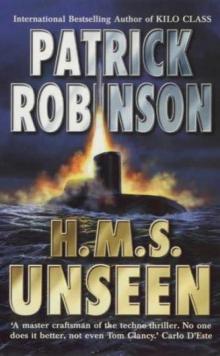 H.M.S. Unseen am-3
H.M.S. Unseen am-3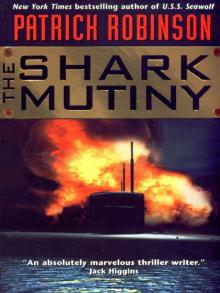 The Shark Mutiny (2001)
The Shark Mutiny (2001)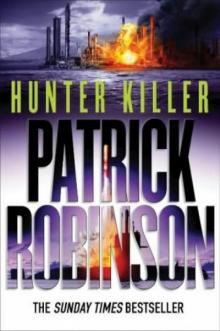 Hunter Killer am-8
Hunter Killer am-8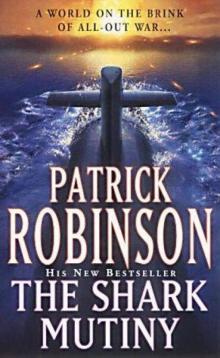 The Shark Mutiny am-5
The Shark Mutiny am-5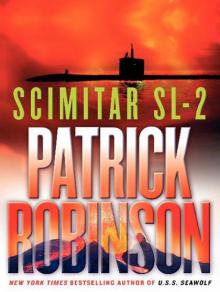 Scimitar SL-2
Scimitar SL-2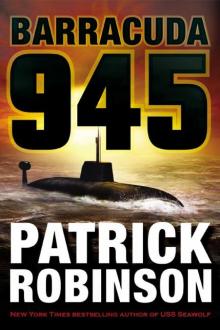 Barracuda 945 am-6
Barracuda 945 am-6 Hunter Killer
Hunter Killer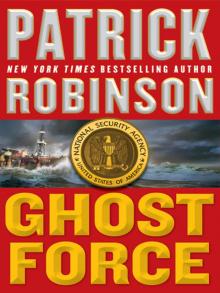 Ghost Force
Ghost Force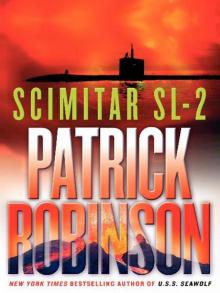 Scimitar SL-2 (2004)
Scimitar SL-2 (2004)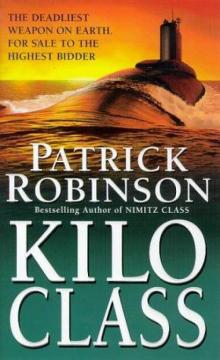 Kilo Class am-2
Kilo Class am-2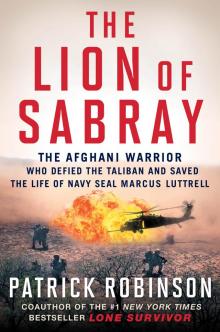 The Lion of Sabray
The Lion of Sabray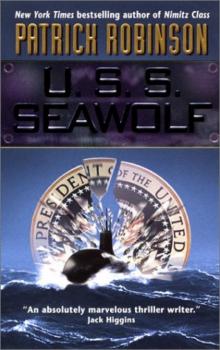 U.S.S. Seawolf am-4
U.S.S. Seawolf am-4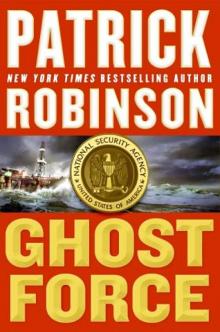 Ghost Force am-9
Ghost Force am-9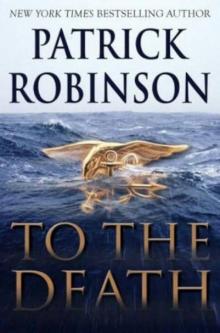 To the Death am-10
To the Death am-10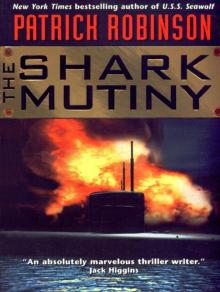 The Shark Mutiny
The Shark Mutiny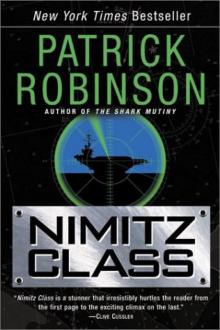 Nimitz Class am-1
Nimitz Class am-1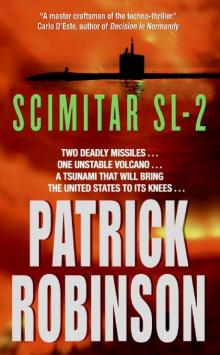 Scimitar SL-2 am-7
Scimitar SL-2 am-7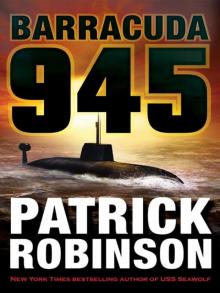 Barracuda 945
Barracuda 945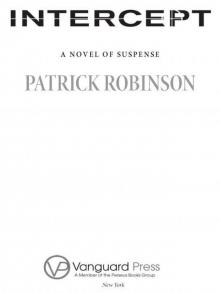 Intercept
Intercept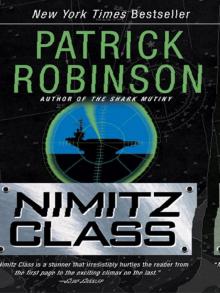 Nimitz Class (1997)
Nimitz Class (1997)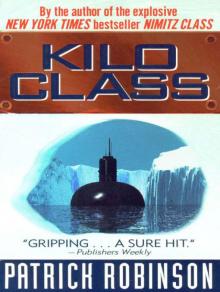 Kilo Class
Kilo Class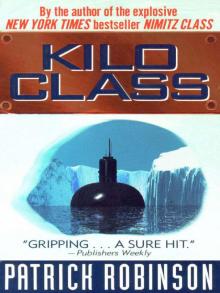 Kilo Class (1998)
Kilo Class (1998) Diamondhead
Diamondhead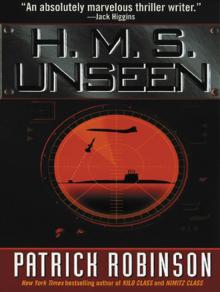 H.M.S. Unseen
H.M.S. Unseen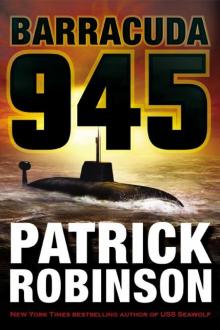 Barracuda 945 (2003)
Barracuda 945 (2003)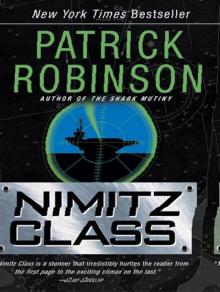 Nimitz Class
Nimitz Class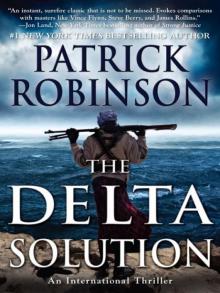 The Delta Solution
The Delta Solution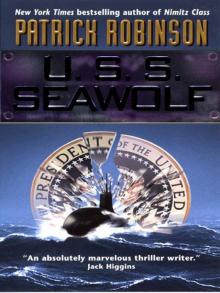 U.S.S. Seawolf
U.S.S. Seawolf